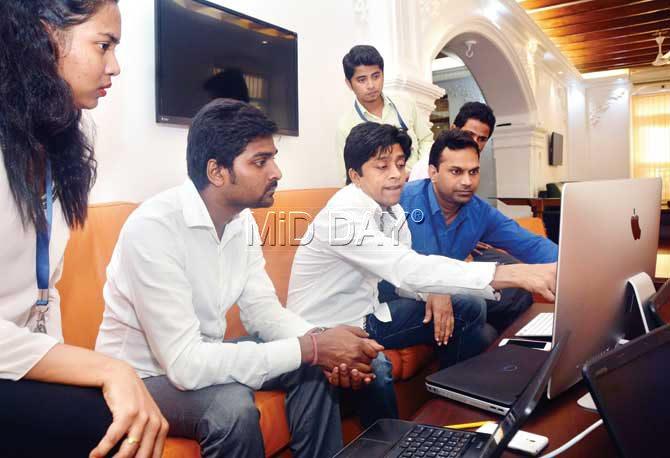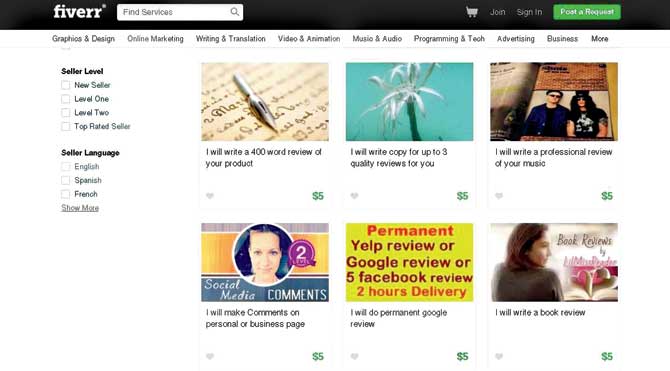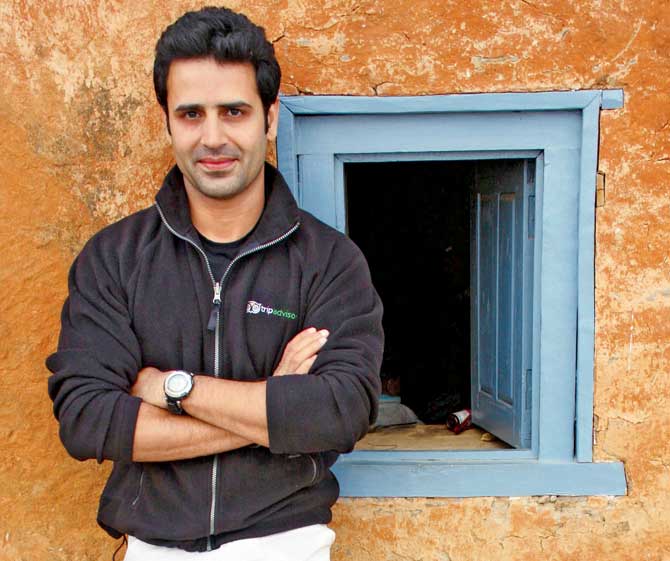Not all online ratings are authentic. Portals revealed the painstaking efforts they take to stay a steap ahead of shills

Fake encounter
Sometimes, users get a mail from us asking if they have indeed reviewed a certain hotel,” says Nikhil Ganju, from the Gurgaon office of TripAdvisor. The mail, he says, was probably sent because his portal’s algorithm detected a change in pattern in the user’s behaviour, which alerted a specialised team at the portal to a possible fake review.
ADVERTISEMENT

What patterns, we ask. Ganju refuses to get into details. In a bid to understand what platforms like TripAdvisor — an online portal that has registered sites in 34 countries but is accessible across the world, crowd sourcing ratings for hotels, B&Bs and restaurants — look for while identifying fake reviews, we suggest an example of a shift in pattern. But, Ganju refuses to budge. “I can’t deny or concur,” he says.
The secrecy isn’t a spectacle aimed at creating corporate buzz. In the world of Internet economics, where online reviews play a decidedly important role when making a purchase — after all, how do you decide which restaurant, hotel or Bluetooth speaker will be best for your budget — the problem of fake reviews is one that the brains behind the portals can’t easily shrug off, especially, since there’s a thriving business behind them.

Have you been shilled?
A November 2014 Google report predicted that by 2016 (which is less than two months away), India will have 100 million online shoppers. In 2015, it is already one of the top five countries across the world to shop online. While advertising will help push a product’s visibility, it still does not convince a shopper to buy them. Unless, of course, there are good reviews to back them. A professional working in the public relations industry, told this newspaper, “Reviews play an important role in pushing sales. Good reviews from customers boost a product’s ranking in an effective way.” However, not all products get good reviews. Or, the kind of numbers that the company wants in the time it wants them in.

In 2012, Faisal Farooqui, CEO of mouthshut.com set up a team of 12 specialists that work towards weeding out fake reviews and reviewers in order to maintain credibility. Pic/Sayed Sameer Abedi
This is when online reputation managers step in. While not all agencies post fake reviews for their clients, some do. And, to bypass the checks and balances that portals like TripAdvisor have put in place, they have their own strategies.
“For instance, if someone in the agency has been tasked with posting 10 reviews a day, they will post the reviews from different locations so that it’s not done from the same IP address — something that portals watch out for. You also have to register under different user names and use different devices. There are also sites via which you can post reviews which will hide your IP address,” he adds. A one-man team could charge Rs 20,000 to up your Search engine optimisation (SEO) which could also include plugging reviews. An agency, with a larger team could charge Rs 20 lakh.

Fiverr.com is a global online marketplace that offers tasks and services. For $5, someone will make yours the ‘App of the Day’, write you a best product description or review your music, book, etc
And then there are options for outsourcing the work as well. Just a visit to fiverr.com, a global online marketplace offering tasks and services, shows how easy it is to buy reviews. For $5 (i.e. Rs 66), someone will make yours the App of the Day, write you a best product description, review your music, your fashion line, books, movie, blog etc. Someone has even promised to post negative reviews, in case you wish to pull down your competition.
In fact, last month, Amazon.com Inc. sued more than 1,000 people who had advertised on fiverr for posting fake reviews on its site. Not the site itself. Interestingly, Amazon itself has a similar site, Mechanical Turks, where one can post jobs that need to be done. And, there have been instances in the past where people have requested reviews to be posted for a price.
A social media entrepreneur says in a generation where people and products — fashion and cosmetics are a big draw — are judged by their popularity online, ‘shilling’ is the norm. A shill is a person who pretends to give an impartial endorsement of something. The word is believed to have been derived from the 20th century word shillaber, denoting a carnival worker who pretended to be a member of the audience in an attempt to elicit interest in an attraction.

Nikhil Ganju, CEO of TripAdvisor says the site gets 200 reviews per minute and now has a team that works within a “walled garden” to monitor their authenticity
“For a price, someone will buy you fake followers on some of the popular social media websites. For instance, one day I realised that there were a lot of Turkish people following me for no apparent reason.” This, he says, could have happened because the followers’ accounts were compromised. Some of the accounts that start following you may even be fake or bots. Something you’ll realise when you look at their posts, if any.
Staying a step ahead
Because a fake review affects the credibility of a site — “their bread and butter”, as Faisal Farooqui, CEO of the user-generated, consumer review platform mouthshut.com calls it — companies now have specialised teams in place to track activities of its users every minute of the day.
Farooqui, for instance, says that in 2011 his company set up a team of 12 specialists. These teams at both TripAdvisor (which has 200 reviews coming in every minute) and mouthshut.com (which gets 2,000 reviews per day) have one thing in common: interaction with other teams even within the same office is kept to a minimum, so that there’s very little idea about how they track fake reviewers.
At Mouthshut.com, says Farooqui, they are made to sign a confidentiality and loyalty agreement. The other measures in place are ensuring that only registered users, with verified email IDs or cellphone numbers, are allowed to post. “We also ask users to include a minimum of 250 words in their review and not just rate the product. This, immediately weeds out a large percentage of those who just want to boost someone’s rating,” says Farooqui.
The measures, he adds, have helped bring down the fake encounters. In 2012, Farooqui says the company identified 4,100 fake profiles all of which were deleted. Today, the number of reviews a day would be five, compared to the 12 a day in 2012.
In a crowd-sourced world, the sites also empower their users to identify fake reviews. Have you seen the “was this review useful” button? It’s a tool that allows user rating to determine how visible a certain post will be.
Also, Amazon will remind you, the Internet is always watching. An Amazon spokesperson told this paper, “We allow customers to use a public pen name, but we have detection and enforcement in place for fake sock puppet accounts. We require customers to make a purchase (and pay for it) before they post a review or before their vote counts publicly. Requiring a purchase allows us to collect uniquely identifying information about the account.
We use this information to prevent content created by sock puppet accounts. For example, if you opened three accounts in order to post three one-star reviews on a book, we would detect that these accounts were related and remove them. Put another way, reviewers are not anonymous to Amazon, even though the reviewer’s identity is not disclosed to other shoppers.”
In it for revenge
Not all reviews are hunky dory, however. Often, and this is a problem that restaurant and hotels face, users post angry reviews about the food even though their problem was with the service, or worse in the case of one Bandra eatery the inability to reach the venue. “We had shifted the location of one of our pick-up and delivery services, but it didn’t show up on a popular online food review site,” says the owner. “One woman didn’t realise this and reached the wrong address. She called us and after directing her we realised that she wanted to dine in. When we told her it was pick-up service, she got agitated and didn’t order. However, she did post a review about the food. We asked the site to pull it down. However, this user pulled down this review, ordered food from us the next day and re-posted it with a new date and time to back herself up,” he says.
In the hospitality world, every review counts. And, a negative one carries more weight. “Eight hundred people saw the review, which affects our business,” says the owner.
The problem is also that on food review sites, regular reviewers carry badges of credibility. So, while they make not be fake, what they say influences the online world. To counter problems arising from egos, Zomato.com has put in place a neutrality team.
Pramod Rao, SVP Growth, Zomato, says, “Our neutrality team utilises a combination of back-end algorithms, metadata, as well as the human eye to keep out falsified experiences. Our team also filters out irrelevant reviews, so if there is no mention of ambiance, food or service in a review we will delete the review and send an email to the user.”
The site will soon feature a Name and Shame feature on a restaurant’s page in cases they find that the restaurant is using unfair means to get reviews or boost their ratings on Zomato. The Name and Shame banner will stay online for 30 days on every violation.
The legal hitch
While a positive listing can do wonders for a mom-and-pop-shop business, a negative one brings more headaches than warranted. Establishments, then wonder if they can get de-listed. At TripAdvisor, at least, that’s not possible. Ganju says, “Since a user can list a restaurant or a hotel, this becomes part of a public database. We don’t charge the establishments to list them,” he says. The only time an establishment pays to be on the site is for a business listing.
But, a fake review is not a listing. It’s not even an advertisement. What it is, is a false representation and can attract a legal suit, says cyber crime expert Ramesh Mohite, once part of the city’s crime crime cell who now runs his private agency at Andheri. “The matter can be taken to a consumer forum and, if concrete evidence is provided of false representation a civil suit can be filed. It’s difficult, but possible,” he says. Farooqui and others know this. But, it’s a long process. They’d rather stay a step ahead and maintain their own credibility.
 Subscribe today by clicking the link and stay updated with the latest news!" Click here!
Subscribe today by clicking the link and stay updated with the latest news!" Click here!








